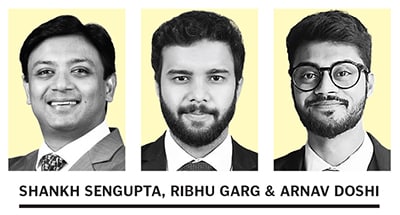A compelling case to reform criminal defamation laws in India
The Supreme Court’s observation for decriminalisation of defamation is an attempt do away with an archaic law, and align with modern and contemporary values and standards


The defamation laws in India sit at the uneasy intersection of two critical fundamental rights: The right to reputation, protected as part of the right to life, and the right to freedom of speech and expression. The offence of defamation in criminal law was inherited by India from the English, and has been retained for reasons which appear outdated in the present landscape. With the change in the means of social, private and public interactions, standards of socially acceptable behaviour, and individual expectations and perceptions as to one’s dignity and privacy, there lies a compelling case for reforming the criminal defamation laws in India.
While defamation has been categorised as an offence to provide a means to citizens to protect and preserve their dignity (which is treated as a part of the fundamental right to life) and to prevent indecency, a civil remedy against defamation has also been available alongside. Further, given that (i) defamation primarily and largely affects an individual and their personal interests, (ii) its occurrence is seldom an affront to the society, and (iii) the accused does not become a reasonable threat to the society, the civil remedy becomes the appropriate (and also, effective) recourse—to both, seek damages and expunge the defamatory content. Therefore, injury from a defamatory act—to one’s reputation, dignity or even other related aspects (such as professional prospects and personal relations) can be remedied effectively and satisfactorily through civil recourse.
However, we have generally seen a tendency of affected litigants to prefer the criminal recourse as it is more intimidating to the counterparty, causes greater inconvenience, negatively impacts the reputation of the accused, elicits better settlements and is also cost-effective. The criminal recourse is strangely also preferred despite a civil recourse having greater scope for restitution and reversal of the defamation. This indicates a scope for misuse of the criminal law machinery for an offence which does not concern social order and interests of a community. The growing tendency to overuse (and even misuse) criminal defamation recourses by individuals has eclipsed the benefits of this recourse.
At this juncture, it is relevant to note that Article 19(2) of the Constitution of India provides that the state can impose reasonable restrictions on the freedom of speech and expression to, among others, address defamation. While one could argue in favour of retaining criminal defamation as it has been expressly recognised under Article 19(2) of the Constitution of India, restricting redressal of defamation to civil remedies may be considered given that criminal proceedings often are disproportionate to the defamatory act. Further, cases of aggravated defamation which affect public morality or decency can be addressed through other existing criminal laws. However, in cases where criminal recourses are initiated by (i) a sensitive (unreasonable) person for an alleged defamatory act which otherwise can be fair criticism, or (ii) an unscrupulous person for ulterior motives—immense, and often irreparable injury may be caused. This also makes a strong case for discontinuing criminal recourses for defamation.
Additionally, given the advancement of social media and increasing availability of avenues to publish and broadcast one’s views, criminal defamation becomes a tool of intimidation to confine, otherwise organic, public discourse. In fact, giving regard to the potential misuse of retaining defamation as a crime, political weaponisation of criminal remedies and availability of parallel civil recourses, several jurisdictions such as South Africa and the the UK have decriminalised defamation.
In Subramanian Swamy versus Union of India [(2016) 7 SCC 221], the Supreme Court upheld the constitutionality of the offence of defamation, reasoning that reputation is integral to dignity and the fundamental right to life under Article 21 of the Constitution. However, the judgment has been critiqued for not adequately addressing the proportionality of criminal laws and punishments or the intended/unintended impact on free speech, especially in the current world of borderless global interaction. However, in a more recent judgment of Imran Pratapgadhi versus State of Gujarat [(2025) SCC OnLine SC 678)], the Supreme Court observed, albeit in a different context, that the impact of spoken or written words should not be evaluated according to the sensibilities of those “who always have a sense of insecurity or of those who always perceive criticism as a threat to their power or position”. Therefore, decriminalisation of defamation (but retaining it as a civil wrong) would be a welcome measure. This move would also develop the scope of civil remedies against defamation, for instance—Indian jurisprudence on preventive actions (such as Anti-SLAPP actions) remains to be explored and evolved.
In this light, the Supreme Court’s recent observation for decriminalisation of defamation can be viewed as an attempt do away with an archaic law and align with modern and contemporary values and standards.
Sengupta is partner, Garg a counsel and Doshi an associate from the Dispute Resolution Practice at Trilegal
First Published: Oct 17, 2025, 11:28
Subscribe Now(This story appears in the Oct 17, 2025 issue of Forbes India. To visit our Archives, Click here.)
